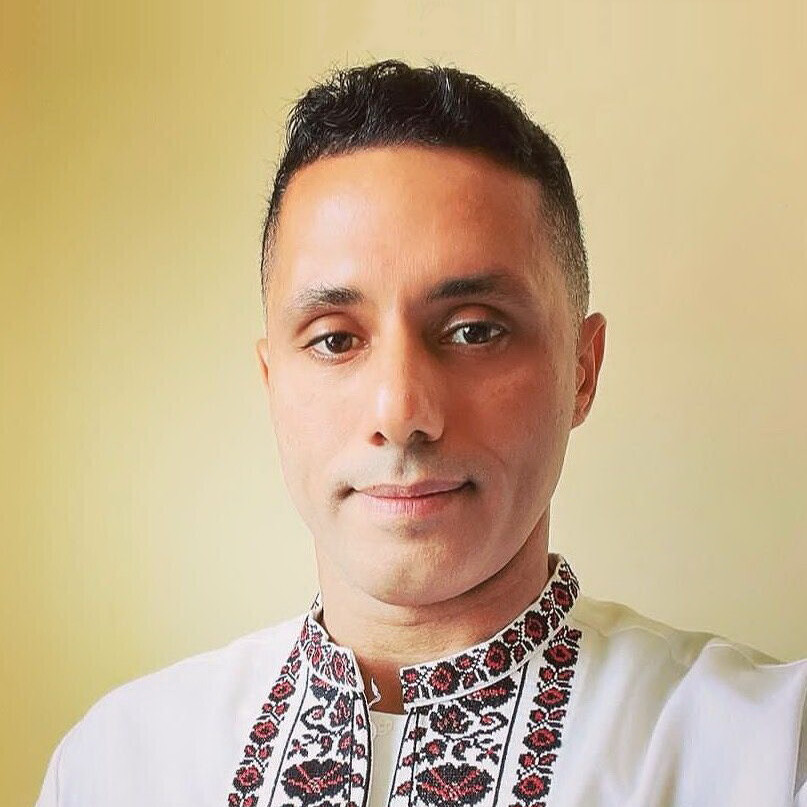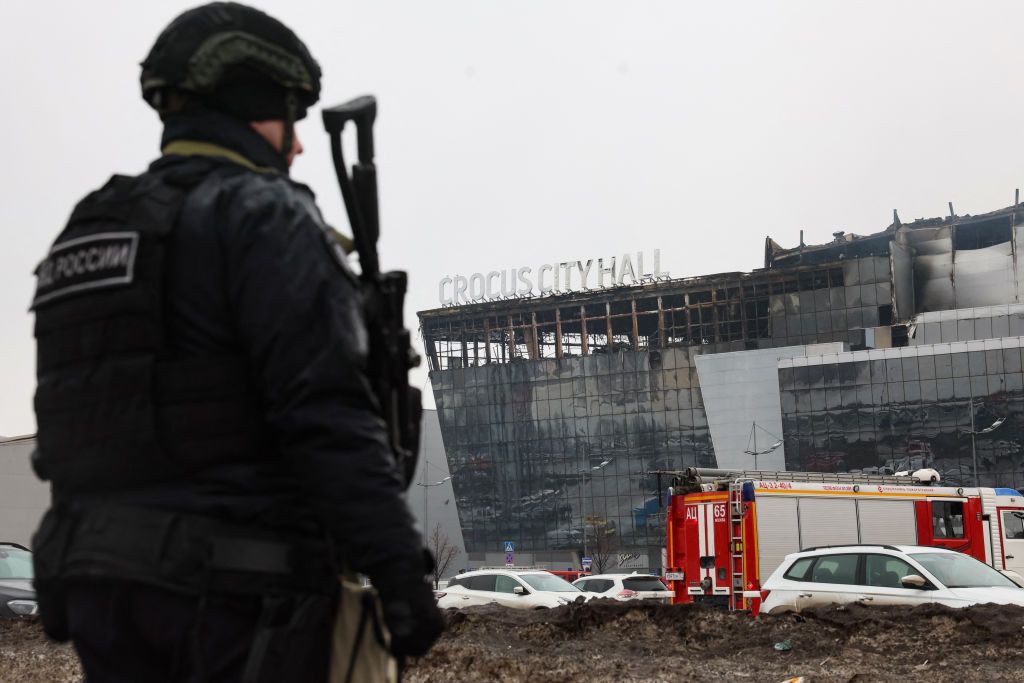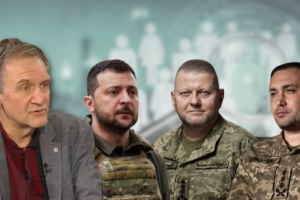
закордонний дослідник, професор безпеки та військових досліджень і голова-засновник програми Критичних безпекових досліджень в Інституті післядипломної освіти Дохи
Source: The Kyiv Independent
DOHA – The terrorist attack on the Crocus City Hall concert venue in a Moscow suburb was no bolt from the blue. The Kremlin dismissed U.S. intelligence warnings of an imminent attack by “extremists,” possibly to shift the blame to a convenient scapegoat when the attack came.
The murder of 137 concert-goers is but the latest atrocity in a decade-long struggle between the Islamic State (ISIS) and Russia. The die was cast on Sept. 30, 2015, when Russia intervened in Syria to support the collapsing regime of Bashar al-Assad. ISIS operatives responded a month later by infiltrating Egypt’s Sharm El-Sheikh airport and planting a bomb on a Russian Airbus, killing all 224 passengers and crew.
In retribution, in September 2017, Russia is alleged to have killed ISIS’ former “war minister,” Gulmurod Khalimov, who had once been the commander of the police special forces of Tajikistan's Interior Ministry and who had fought beside the Russian forces during the Tajik Civil War. All of the alleged Crocus City Hall attackers are from Tajikistan.
The Syria-based “provinces” of ISIS – such as the defunct Homs and Raqqa – fought Russian regulars and irregulars, including the mercenary Wagner Group, in dozens of battles, most notably in Palmyra in 2015, 2016, and 2017. The December 2016 battles were particularly embarrassing for Russian President Vladimir Putin because ISIS forces recaptured the city from his forces and allies.
Between 2015 and 2024, Russia has supported many of ISIS’ avowed enemies. That includes military and intelligence coordination with Hezbollah, political support for Hamas, and political, intelligence, and possibly military support for the Taliban. All three organizations fought bitter battles against ISIS “provinces” and cells in Lebanon, Syria, Gaza, and Afghanistan.
The Wagner Group and its successor remnants in the so-called Africa Corps have also fought ISIS in Libya, Mozambique, and Mali. ISIS-Khorasan (ISIS-K), the branch whose operatives are suspected to have committed the Crocus City Hall attack, is active primarily in Afghanistan and Pakistan. The Khorasan “province” formally emerged in January 2015, when defectors from the Taliban and other groups pledged allegiance to ISIS.
Like other relatively large ISIS provinces, ISIS-K is a brigade-sized military organization that has fought against almost every state and non-state force in or bordering its areas of operation. It carried out a suicide attack in August 2021 that killed 13 American military personnel and at least 169 Afghans in Kabul during the U.S. withdrawal from Afghanistan; an attack on the Russian embassy in Kabul that killed two of its staff in September 2022; and, in January, allegedly, a twin suicide bombing of a ceremony in Iran commemorating the death of Major-General Qassem Suleimani.
 A Russian law enforcement officer patrols near the Crocus City Hall concert hall outside Moscow, Russia, on March 23, 2024, after the terrorist attack that killed over 100 people. (Stringer/AFP via Getty Images)
A Russian law enforcement officer patrols near the Crocus City Hall concert hall outside Moscow, Russia, on March 23, 2024, after the terrorist attack that killed over 100 people. (Stringer/AFP via Getty Images)
ISIS’ way of waging war skillfully combines conventional, guerrilla, and terrorist tactics. Thus, despite being widely hated, massively outnumbered, and overwhelmingly outgunned, ISIS managed at one time to occupy over 120 cities, towns, and villages from the southern Philippines to western Africa, and has survived war mounted by nearly 80 states. In many ways, Russia’s hybrid-war operations in Crimea and the Donbas in 2014 mimicked tactics ISIS used to occupy Raqqa and other cities in 2013.
But ISIS leaders are poor strategists, with no viable military approach, as their targets range from al-Qaeda and the Taliban to the United States and its allies. Iran and Russia are included as well.
But Russia under Putin has a history of false-flag operations, the Ryazan attack in September 1999 being perhaps the best-known. That incident, unfolding against the backdrop of a series of deadly bombings in Moscow and other Russian cities, raised profound questions about Putin’s involvement in acts of state terrorism, ostensibly to justify escalating military actions in Chechnya and therefore consolidate power.
Fast forward to March 2024. Although a Russian National Guard (Rosgvardiya) base is only two miles (3.2 kilometers) from the Crocus City Hall venue, it took over 90 minutes for the security forces to mobilize despite the warnings of possible attacks that the Kremlin had received. Whether this is incompetence or conspiracy, Putin seems to have already made up his mind about where the blame lies: in Ukraine.
Dead bodies and a burned entertainment complex in the Russian capital just a few days after Putin’s “re-election” are not just terrible optics. They are the result of security breaches, intelligence failures, political complacency, and possibly worse. But the Kremlin seems determined to use its massive propaganda apparatus to deflect public anger toward Ukraine.
Despite regaining the operational initiative during winter, Russia remains far from achieving its strategic objectives in Ukraine. Indeed, 18 months, hundreds of thousands of Russian casualties, and hundreds of billions of dollars spent, Russia still does not control the entire territories of the “annexed” oblasts.
For large-scale offensive maneuvers, Russia needs more manpower, more domestic resources, and less local resistance – civil or armed. Putin, an exemplary cynic, may well have allowed the attack on the Crocus City Hall venue to take place so that he could use it to push mass mobilization, strengthen domestic support for the war, and make opposition to his rule even more difficult. Like ISIS, Putin’s war on Ukraine seems to be enduring and expanding.
Editor’s Note: Copyright, Project Syndicate. This article was published by Project Syndicate on March 25, 2024, and has been republished by the Kyiv Independent with permission. The opinions expressed in the op-ed section are those of the authors and do not purport to reflect the views of the Kyiv Independent.








